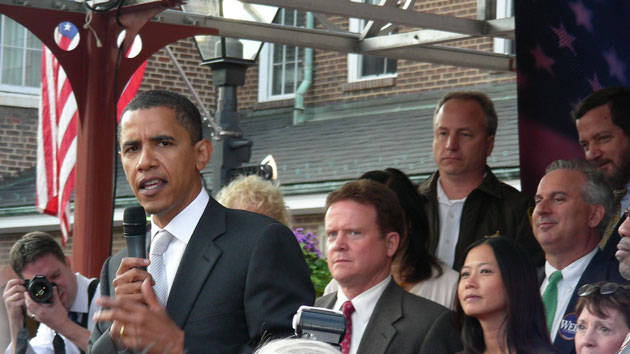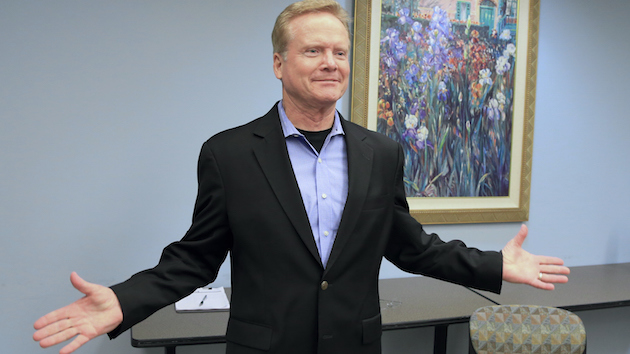
<a href="https://www.flickr.com/photos/97248334@N00/248619188/in/photolist-nYePJ-5vzRYC-rHE69-nYePD-rHE8E-rHE9G-89ZrhV-8a3u5u-8a3Egu-8Nysqs-8NvnuH-8NvmiB-8NvmUZ-8NvmKn-8NvnZn-8NysBu-8NvmvH-8a3CeU-8a3Dyo-8NyyFq-8NvtJn-8a3uWy-8Nyvk5-rHE7u-8NviCP-8Nyp5h-nYePG-rHEbd-89ZtUT-8a3DTG-8NyuWw-8Nvs1r-8Nyxs9-8Nvrpv-8a3syu-89Zetn-89Ze7n-8Nytxs-8Nypz1-8Nyu7G-8Nvpfz-8Nvp2M-8NvomT-8Nvpst-8NytVm-arK5iK-arMQzW-arMPnE-arMMY7-arKu7e">kalexnova</a>/Flickr
Former Sen. Jim Webb (D-Va.) dropped out of the Democratic presidential race on Tuesday but left open the possibility of running next year as an independent. Webb has been many things—decorated Vietnam vet, boxer, Navy secretary, author, senator—but for a few months in 2008 (until he took his own name out of consideration), he was also a popular choice to be Barack Obama’s running mate. Webb, as the Wall Street Journal put it, was “the sort of Democrat who can offer strong defense credentials, as well as a centrist, pro-gun appeal to white voters in an upper South state.”
And maybe that’s where he went wrong. Seven years later, almost every individual floated as potential Republican or Democratic vice presidential choice in 2008 is either out of politics or on their way out. Consider John McCain’s choices:
Louisiana Gov. Bobby Jindal: Currently touting his strong tied-for-fifth-place showing in the Iowa polls.
Alaska Gov. Sarah Palin: Resigned during her first term, now writing occasionally viral Facebook posts.
Connecticut Sen. Joe Lieberman: Retired to become a lobbyist.
Minnesota Gov. Tim Pawlenty: Couldn’t beat Michele Bachmann, now a lobbyist.
Virginia Rep. Eric Cantor: Lost his primary to this guy.
Former Massachusetts Gov. Mitt Romney: Skiing, probably?
Former Homeland Security Secretary Tom Ridge: Running a global security firm.
Or Obama’s:
Indiana Sen.Evan Bayh: Retired to become a lobbyist.
Kansas Gov. Kathleen Sebelius: Resigned from her post as secretary of health and human services after a calamitous HealthCare.gov rollout.
Texas Rep. Chet Edwards: Lost his seat in 2010.
Delaware Sen. Joe Biden: It’s complicated.
The only exception to the Curse of 2008 is then-Virginia Gov. Tim Kaine, who went on to replace Webb in the Senate and is currently considered a possible vice presidential candidate on the Democratic side. (Hillary Clinton was famously not considered, which perhaps explains her bright presidential prospects in 2016.)
The lesson, as always, is to never do anything ambitious.

















